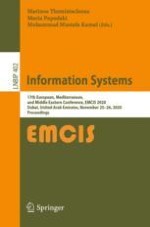2020 | OriginalPaper | Buchkapitel
Social Media Impact on Academic Performance: Lessons Learned from Cameroon
verfasst von : Josue Kuika Watat, Gideon Mekonnen Jonathan, Frank Wilson Ntsafack Dongmo, Nour El Houda Zine El Abidine
Erschienen in: Information Systems
Aktivieren Sie unsere intelligente Suche, um passende Fachinhalte oder Patente zu finden.
Wählen Sie Textabschnitte aus um mit Künstlicher Intelligenz passenden Patente zu finden. powered by
Markieren Sie Textabschnitte, um KI-gestützt weitere passende Inhalte zu finden. powered by
